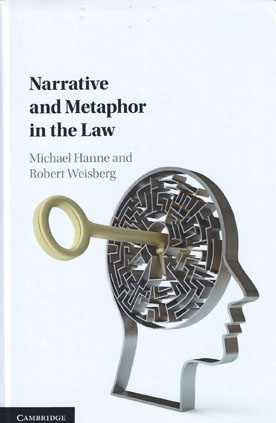We are now closed for the Christmas and New Year period, returning on Monday 5th January 2026. Orders placed during this time will be processed upon our return on 5th January.

It has long been recognized that court trials, both criminal and civil, in the common law system, operate around pairs of competing narratives told by opposing advocates.
In recent years, however, it has increasingly been argued that narrative flows in many directions and through every form of legal theory and practice. Interest in the part played by metaphor in the law, including metaphors for the law, and for many standard concepts in legal practice, has also been strong, though research under the metaphor banner has been much more fragmentary.
In this book, for the first time, a distinguished group of legal scholars, collaborating with specialists from cognitive theory, journalism, rhetoric, social psychology, criminology, and legal activism, explore how narrative and metaphor are both vital to the legal process. Together, they examine topics including legal persuasion, gender in the law, innovations in legal thinking, and public debate around crime and punishment.